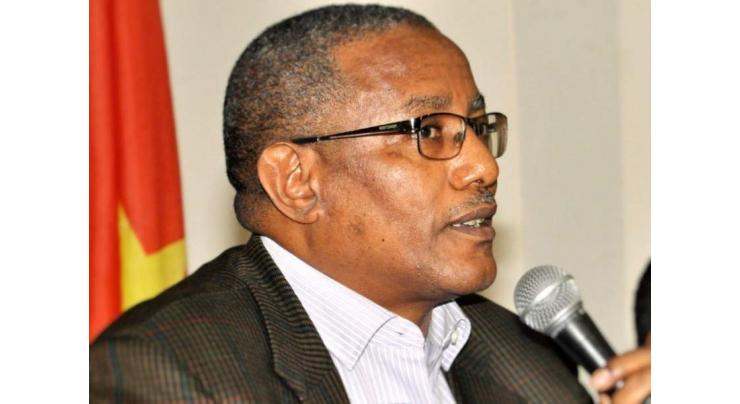
- Home
- World
- News
- Ethiopian Foreign Minister Envisages AfCFTA to Boost Pan-African Businesses, Opportunities
Ethiopian Foreign Minister Envisages AfCFTA To Boost Pan-African Businesses, Opportunities
Mohammad Ali (@ChaudhryMAli88) Published September 11, 2019 | 07:56 PM

The African Continental Free Trade Area (AfCFTA) agreement can get a new momentum in terms of boosting pan-African trade and creating more business opportunities now that the economic growth of the continent and direct foreign investments are on rise, Ethiopian Foreign Minister Gedu Andargachew told Sputnik
Andargachew is currently in Moscow for a three-day official visit.
The AfCFTA, which entered into force on May 31 after being ratified by the necessary threshold of 22 signatories, aims to create a tariff-free pan-African market that will foster intracontinental trade and business development as well as spur industrialization and employment opportunities.
"The AfCFTA is one of the projects of pan-Аfricanism. This free trade agreement will encourage African business people to look at the horizons, at the whole Africa.
Africa's economy is improving, its growing fast ... foreign direct investments are engaging in Africa," Andargachew said.
According to the minister, the rapid economic growth and surge of direct foreign investments are an opportune development to further promote the AfCFTA.
"Now every corner of Africa is open for everyone to produce, sell goods and services. That will encourage African business people to move throughout Africa. That will create opportunity," Andargachew said,
He added that despite there being concerns, they were not of unmanageable kind.
AfCFTA was immediately signed by 44 out of 55 African countries when it was launched in Rwanda's capital, Kigali, in March 2018. Nigeria, one of Africa's leading economies, along with Benin, initially refrained but eventually signed it in summer 2019. Eritrea now remains the sole outsider.
Related Topics
Recent Stories

Pak Vs NZ T20I: Orphaned children extended special invitation to watch match

Finance Minister lauds UNDP’s unwavering support during floods

President Raisi leaves for Iran from Karachi

Currency Rate In Pakistan - Dollar, Euro, Pound, Riyal Rates On 24 April 2024

Today Gold Rate in Pakistan 24 April 2024

Punjab CM inaugurates Pakistan’s first Virtual Women Police Station

Dutch model Donny Roelvink embraces Islam

Experts raise concerns over introduction of 10-stick packs

Iranian president arrives in Karachi

Law Minister expresses Govt's resolve to address issue of missing persons

Rizwan’s batting order may be changed: Sources

Nawaz Sharif to visit Guangzhou exhibition in China
More Stories From World
-
China renews blue alert for rainstorms
44 seconds ago -
China's overnight Shibor interbank rate decreases Wednesday
53 seconds ago -
Means of production prices mostly rise in China
55 seconds ago -
China's Chang'e-7 lunar mission to carry instruments developed through int'l cooperation
1 minute ago -
Tokyo stocks end higher tracking Wall Street gains
21 minutes ago -
Wildfires burn large land in Mongolia
21 minutes ago
-
S. Korea's births keep falling in February
21 minutes ago -
China to send Spain new panda couple on April 29
21 minutes ago -
Chinese astronauts fix space station power supply after debris hit
21 minutes ago -
Italy marks fascist defeat amid TV censorship row
31 minutes ago -
Russia energy sites on fire after drone attacks: governor
41 minutes ago -
Pakistan catching ride on global EV boom
51 minutes ago